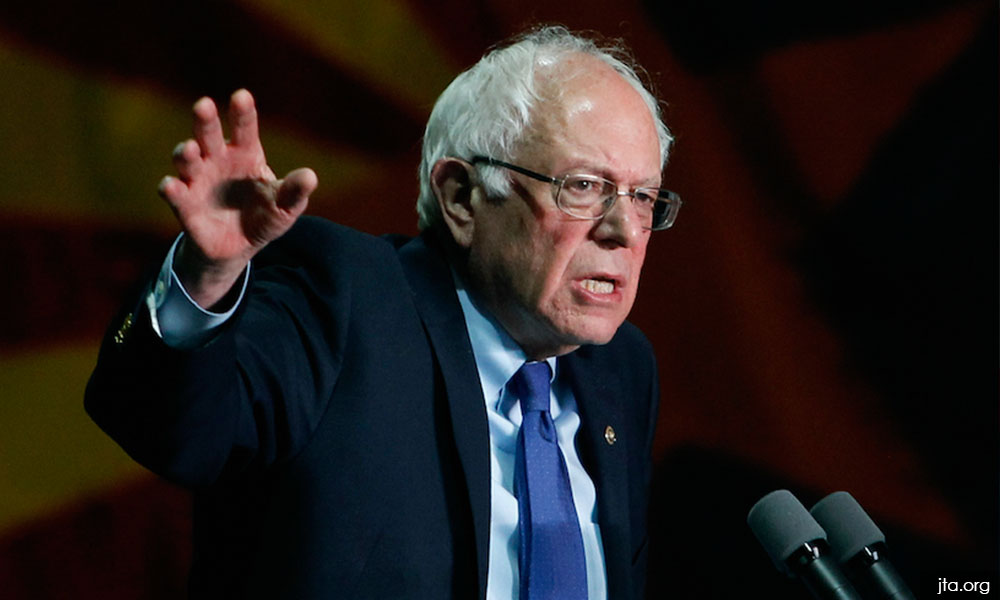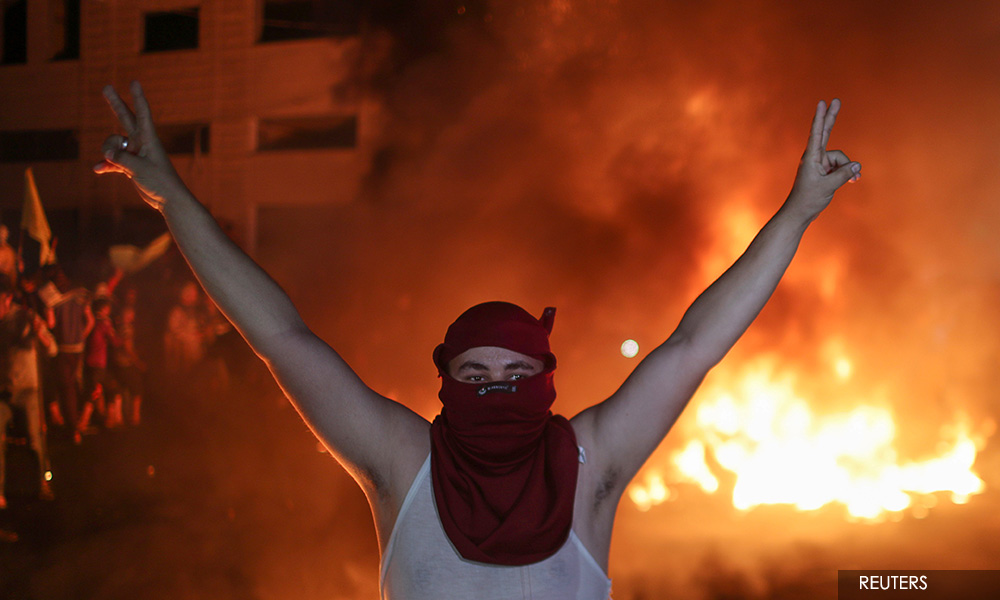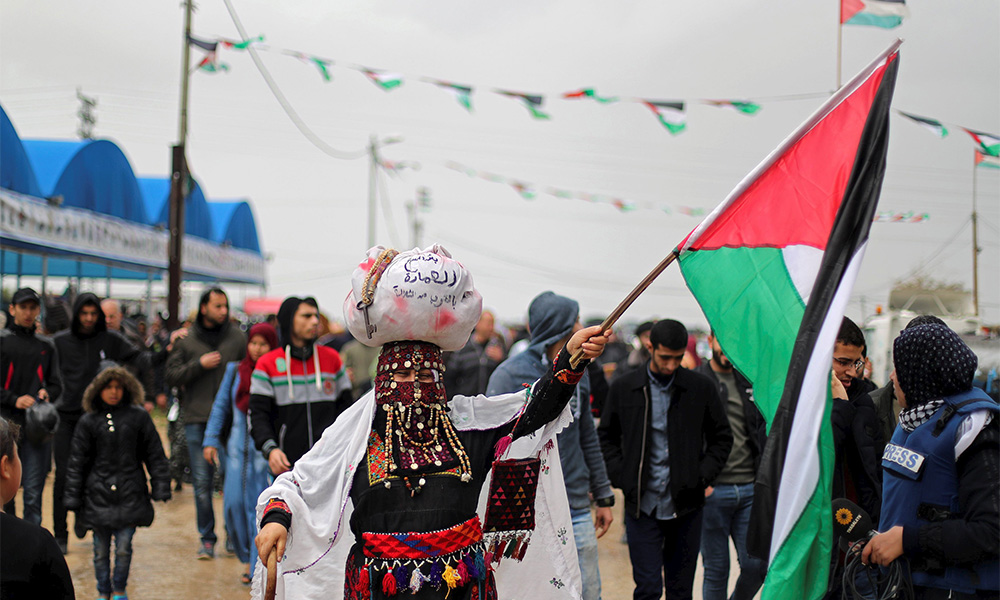LETTER | The ongoing Israeli-Palestinian conflict could drag on dangerously as unlike before, new factors have come into play that could prevent a de-escalation or a ceasefire.
There are new players in Israel - the ultra-orthodox Jews - who are now a powerful force and who have the backing of the Israeli leadership, which has now moved very much to the right under Prime Minister Benjamin Netanyahu.
These Jews have now begun targetting the Israeli Arabs in mixed Arab-Jewish areas and this has led to sporadic violence resembling a minor civil war. The Israeli Arabs have long co-existed with the Jews and have sought equal democratic partnership in Israel and be assimilated in the long run, which could give real hopes to the Israelis and Palestinians living side by side under a two-state solution to this long-festering Middle East conflict.
All these hopes have been jeopardised by the intransigence of this extremist sect. Recently, 44 members of this group were killed in a stampede during a religious gathering, a situation unheard-of in Israel, or for that matter, among the Jews anywhere in the world. This has drawn attention worldwide to this group and the attacks on fellow Israeli Arabs are sure to place them in a negative light.
The Israeli government is hard-pressed to control this group as it is a sensitive religious issue that could spin out of control, and thus, the government has to bear with them. The Israeli government is weak and unstable as four elections in the last two years have not produced a majority government but more of a stalemate.
The violence in the Middle East could continue indefinitely as all the world leaders are preoccupied with the Covid-19 pandemic and its devastating socio-economic and political consequences.The Middle East Quartet comprising the US, Russia the EU and the UN has been dormant for so long without any initiative to resolve the crisis.
New developments concerning the quartet have occurred with the US-EU relations with Russia being strained by the Ukrainian issue, and Britain has exited from the EU. The main hope is that US President Joe Biden will give the evasive peace process a renewed effort as his new administration is being looked upon as being even-handed to both sides of the conflict.

The Biden administration has an asset in former presidential candidate, Bernie Sanders (photo), a Jew himself, who has been vocal about the need for the US to be fair and equitable in its peace-brokering process between the Israelis and Palestinians.
Sanders could be made the Middle East peace envoy to bring about an agreement between the opposing sides. Americans are supportive of Sanders as was judged by his support in the two presidential primaries of the Democratic Party. The Arabs, too, look favourably towards him for his neutral stance. The main reason why previous peace initiatives faltered was that they were very much unfair and lopsided, which neither side could accept.
It cannot be denied that Israel has to give more to make any peace agreement equitable and acceptable to the Palestinians. Israel cannot be intransigent to the point that it does not want peace and instead prefer an unending conflict and strife in the neighbourhood.
Israel needs to take note that it is fast losing friends the world over as nations that supported it during the six-day war in 1967 and the Yom Kippur war in 1973 are now remaining neutral or are calling for an end to the hostilities and violence. Even Turkey, which was friendly, is now openly hostile to Israel.

Large-scale demonstrations have taken place in Europe criticising Israel. The Palestinians, too, need to face reality as their cause is becoming a forgotten one in the Arab world as well as among other Islamic countries as they have their own domestic problems to grapple with. Recently, four nations - the UAE, Sudan, Bahrain and Morocco - normalised relations with Israel during the Donal Trump presidency. The Palestinians are divided and the two factions in Gaza and the West Bank are very much opposed to each other, thus making any peace initiatives hopeless of finding success.
When peace treaties were signed between Israel and Egypt followed by Jordan, there was much hope that a peace accord with the Palestinians could be next. Looking back, it appears that there was a better chance of this happening before the demise of PLO leader Yasser Arafat.
Expectations were high during the Barack Obama administration that a solution could be ironed out between the Israelis and Palestinians, but the Arab Spring, the rise of the Islamic State and the Syrian and Libyan civil wars, put paid to such hopes. The Trump presidency had made the situation worse as his open support for Israel's belligerence and moving the US embassy to Jerusalem has heightened tensions.
Israel needs to feel that it is more secure now than decades before as peace with Egypt and Jordan has created friendly neighbours, and the Syrian civil war has debilitated Syria to the point that it is now defenceless. The northern border with Lebanon is mostly quiet as the Hezbollah controls the area, unlike the fluid situation during the 1970s to the 1990s.
Israel gained a lot of diplomatic recognition and friends, such as China and India, after the peace accords and this shows that there is a lot to gain by having more friends than foes. Israel's primary problem now is with the Palestinians and it has to resolve this problem by a give-and-take attitude as nothing guarantees the security and wellbeing of Israel in the long term than peace on its borders.
Both Israel and the Palestinians need to take note that the billions of dollars promised by the Europeans and US to help re-settle all the refugees as part of a total solution to the problem is equally in danger of not being fulfilled as these rich nations cannot be as generous as promised due to the socio-economic devastation of the pandemic.

The five permanent members of the UN Security Council - China, France, Russia, the United Kingdom, and the United States - can also collectively endeavour to forge a peace process to find a solution to the long lingering crisis. This quintet can pressure both the Israelis and Palestinians to opt for peace talks and the inclusion of China could bring fresh new perspectives for a peaceful solution. China, furthermore, is seeking to play a greater role in world affairs and China's participation can be positive.
Anyway, the Israeli-Palestinian issue is also an Asian one. Action needs to be taken immediately as the violence between the Israelis and Palestine could take a serious turn, making it difficult for a truce or a resumption of peace talks.
The Big Five have the responsibility and duty to act immediately to defuse the situation. The veto power comes with privileges as well as duties. When the Big Five 5 are collectively involved, they will not use the veto to undo one another as the case is presently. Many countries are against the Big Five holding on to their veto power undemocratically, and the Big Five need to show and prove that the veto power and their permanency in the Security Council is to maintain peace for the good of the world.
The views expressed here are those of the author/contributor and do not necessarily represent the views of Malaysiakini.

